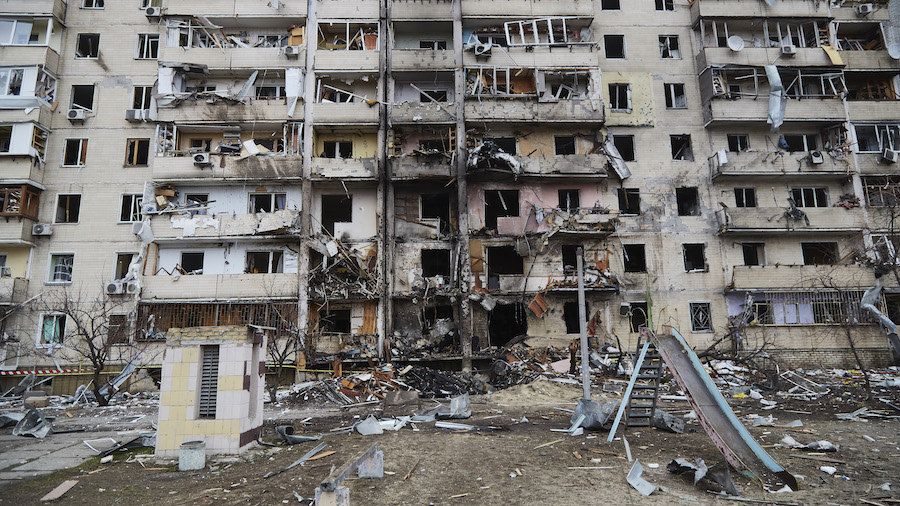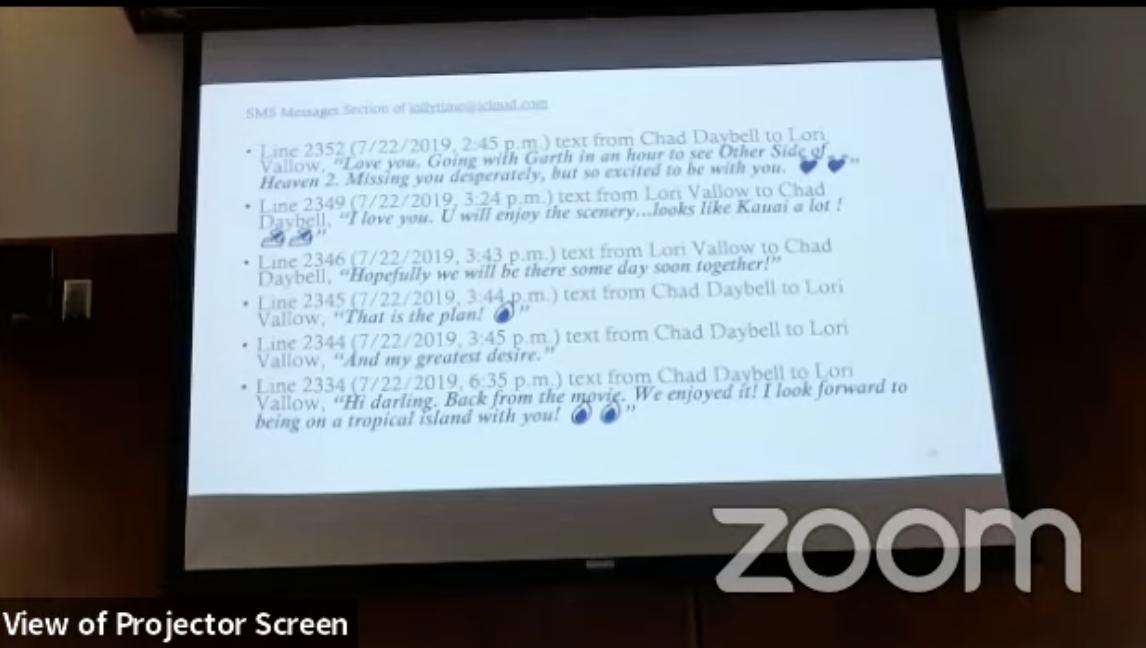Utah tech company scrambles to support employees in Ukraine
Mar 1, 2022, 7:56 AM | Updated: Jun 19, 2022, 9:53 pm

A residential building damaged by a missile on Feb. 25, 2022, in Kyiv, Ukraine. Yesterday, Russia began a large-scale attack on Ukraine, with Russian troops invading the country from the north, east and south, accompanied by air strikes and shelling. The Ukrainian president said that at least 137 Ukrainian soldiers were killed by the end of the first day. (Photo by Pierre Crom/Getty Images)
(Photo by Pierre Crom/Getty Images)
SALT LAKE CITY – Dale Richards usually spends his time helping companies craft a vision for new apps and finding the right software developers for the job. Now, he’s trying to make sure his staff is safe from artillery fire and has enough to eat.
When he goes days at a time without hearing from his three remote employees in Ukraine, panic sets in.
“They’re nowhere on the radar. You can’t reach them. You have no idea if they’re alive,” said Richards, CEO of AppCreative in Lehi. “It’s really disturbing.”
There’s no shortage of talented developers in Ukraine, and many play an important but lesser-known role in Utah’s tech industry, said Richards, founder and CEO of AppCreative in Lehi. The company is one of a handful in Utah employing computer scientists from the nation now under attack by Russia — and seeking to help them get to safety.
Hundreds gather at Utah Capitol for ‘Stand With Ukraine’ rally
Richards said he is paying them early, checking in on them often and offering help charting paths to Poland or other neighboring countries. His trio of employees lives in the capital, Kiyv, as well as the cities of Lviv and Zaporizhzhia.
His overseas staff was hunkering down in underground metro stations and other places Monday, and wasn’t available to speak with KSL TV, Richards said. He keeps tabs on them as best he can with short video calls and messages.
He’s also working to support 15 employees in Russia.
The company has been able to keep paying them despite U.S. sanctions on certain banks, but he’s worried that possible heftier sanctions may force him to take them off his payroll within days. And as many American companies move to cut ties with Russia, he’s evaluating whether it’s moral to stay put, he said.
“I haven’t had to have the conversation yet saying, ‘I can no longer employ you. But I’m worried that I probably will have to have that within the next like four or five business days,” he said. “Should we even continue to employ Russian developers? I don’t know that I really have an answer yet.”
He’s one of several tech executives who have tapped the World Trade Center Utah for help navigating the effects of the Russian attacks. The organization is putting them in touch with experts on sanctions and security, said Miles Hansen, president and CEO of World Trade Center Utah.
“This is something that relatively few companies are dealing with,” Hansen said. “But for those that are, this is a crisis moment, and we’re stepping up to provide support to them.”

Miles Hansen, president and CEO of World Trade Center Utah, which seeks to attract business to Utah and increase the state’s exports. (Tanner Siegworth/KSL TV)
He noted that many Ukrainians, including those employed by Utah tech companies, have decided to stay and fight to defend their country if need be, “which is absolutely harrowing and inspiring, all at the same time.”
While Richards and Hansen said the wellbeing of Ukrainian employees is their top concern, the disruption is also affecting businesses who relied on their expertise to roll out new online products or update their digital services, causing delays.
“Suddenly, having this chunk of an organization not functioning has an impact on the companies here,” Richards said.














